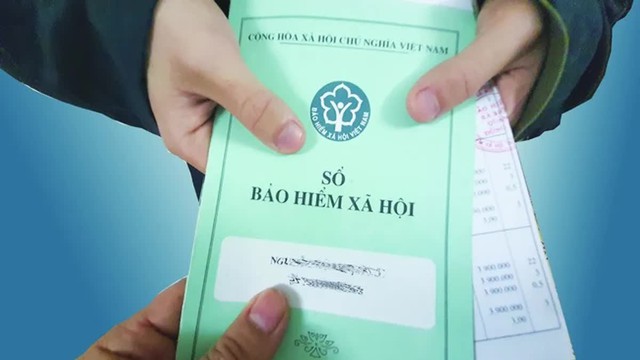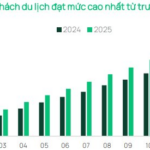
One-time social insurance is a social security program provided by the government to support workers participating in mandatory insurance and citizens participating in voluntary social insurance upon request and meeting the conditions will be able to withdraw one-time insurance.
One-time social insurance is one of the benefits when participating in social insurance. This is a way for workers to use their insurance money as they wish, instead of waiting until retirement age to receive monthly pensions.
No monthly pension when getting old.
If they have paid social insurance for a minimum of 20 years, when they reach retirement age, workers will receive a monthly pension paid by the social insurance agency.
Based on Article 55 and Article 74 of the Social Insurance Law 2014, the monthly pension of workers will be calculated as follows:
Monthly pension = Proportion x Average monthly wages/incomes for social insurance contribution
Among which, female workers will receive a proportion of 55% and male workers will receive 45%.
If they only have 20 years of social insurance contribution, the monthly pension will be relatively low. If they have paid for a full 20 years or more, for each additional year of contribution, workers will receive an additional 2% of the pension. The maximum pension for both male and female workers is 75%.
Therefore, the longer workers contribute to social insurance, the higher their pension will be when they get old, but with a maximum limit of 75%.
The pension amount will be paid monthly to workers from the retirement age until their passing. To ensure the narrowing of the gap in pension amounts between workers, the Government has issued a Decree to adjust the increase in pensions based on the increase rate of the consumer price index and economic growth appropriate to the state budget and the social insurance fund (Article 57 of the Social Insurance Law 2014).
However, if workers choose to withdraw their social insurance contribution as a one-time payment, their previous contribution history will be erased. If they do not continue to participate in social insurance, they will naturally not receive a pension when they get old.
Wasting money on health insurance but receiving a lower amount than people with pensions.
According to Clause 1, Article 2 of Decree 146/2018 / NĐ-CP, people who are receiving pensions that belong to the group of participants in health insurance (BHYT) by the social insurance agency. Accordingly, in addition to receiving a pension, workers are also granted free health insurance cards.
On the other hand, since they have already withdrawn the social insurance contribution as a one-time payment and are not eligible for a pension, workers will have to pay out of pocket to buy health insurance cards for their families.
Not only must they pay for health insurance cards, but the amount of health insurance coverage for individuals receiving pensions versus those participating in household health insurance also has certain differences.
According to Article 22 of the Health Insurance Law 2008, amended in 2014, the health insurance payment rate when receiving medical examination and treatment at the correct level for individuals receiving pensions is 95%, while participants in household health insurance are only paid 80%.
Therefore, when workers are unable to receive a pension due to withdrawing their social insurance contribution as a one-time payment, they not only have to buy health insurance themselves but also have to accept a lower payment rate for medical examination and treatment compared to people with pensions.
No funeral allowance for deceased workers.
According to the regulations in Article 66 of the Social Insurance Law 2014, workers who are receiving pensions that pass away, the person responsible for the funeral will receive a funeral allowance. This amount will be paid by the social insurance agency once to the relatives of the deceased worker.
Funeral allowance = 10 x Basic salary level
Currently, the applied basic salary level is 1.8 million VND/month. Accordingly, the determined funeral allowance is 18 million VND.
In addition to relatives of workers receiving pensions, if workers are participating in social insurance or are reserving the social insurance contribution period and have contributed for at least 12 months but pass away, their relatives are also eligible for this type of allowance.
Therefore, if workers have withdrawn their social insurance contribution as a one-time payment with the entire contribution period, when they pass away, their relatives will not receive a funeral allowance.
However, if workers have withdrawn their social insurance contribution as a one-time payment and then continue to participate in social insurance, if they unfortunately pass away, their relatives still have a chance to receive a funeral allowance.
Relatives are not eligible for survivor’s benefits.
Based on Article 67 and Article 69 of the Social Insurance Law 2014, workers who are receiving pensions that pass away, their relatives will be eligible for survivor’s benefits, which can be a one-time allowance or a monthly allowance.
According to Article 69 and Article 70 of the Social Insurance Law 2014, if workers receiving pensions pass away, their relatives will receive the following benefits:
– Monthly survivor’s allowance:
+ Relatives without direct caregivers:
Monthly survivor’s allowance = 70% x Basic salary level = 1,043,000 VND/month
+ Other cases:
Monthly survivor’s allowance = 50% x Basic salary level = 745,000 VND/month
– One-time survivor’s allowance:
+ Workers pass away in the first 2 months of receiving pensions:
One-time survivor’s allowance = 48 x Monthly pension amount received
+ Workers pass away from the third month of receiving pensions onwards:
One-time survivor’s allowance = 48 x Monthly pension amount received – 0.5 x (Number of months received pensions – 2) x Monthly pension amount received
In which: The minimum amount is equal to 3 months of the pension received.












